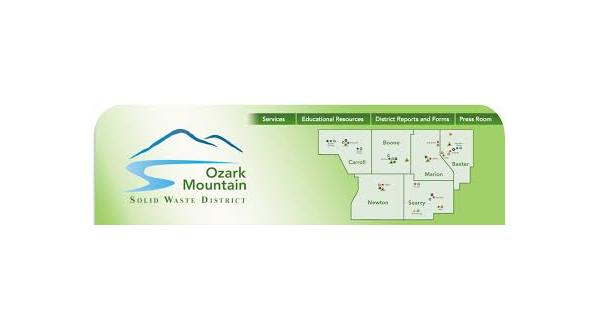
Three lawsuits regarding the $18 fee charged to property owners in connection with the NABORS landfill have been filed as class action suits in Boone, Carroll and Newton counties.
The Harrison Daily Times reports court records show Robert L. Tanner and Tanner Family, LLC filed suit against the Ozark Mountain Solid Waste District and Collector Amy Jenkins in Boone County. In addition, Tanner Family, LLC filed the same suit in Newton County against the solid waste district and Collector Sheila McCutcheon, and Paul Summers filed suit against the solid waste district in Carroll County last week.
Baxter County Judge Mickey Pendergrass, who serves as chair of the solid waste district board of directors, told KTLO, Classic Hits and The Boot news Thursday he has not been served with the lawsuit documents. Consequently, Judge Pendergrass says at this time, he is not able to comment on the developments.
The board of what is now the solid waste district voted in 2005 to purchase the RLH landfill in northern Baxter County at a time when the Arkansas Department of Environmental Quality said it would not license any additional landfills in the state.
The district sold about $12.3 million in bonds to finance the purchase. The Northwest Arkansas Economic Development District managed the landfill at first, but the board split ways with the agency in 2009.
There were environmental problems with the landfill at the time of purchase, and some money from those bonds was to be directed to rectifying those problems. ADEQ rejected several plans the district proposed, resulting in the identified problems not being corrected.
The district moved to raise tipping fees charged to haulers when they dumped trash to keep revenue flowing. As those fees rose, some of the six counties ceased using the landfill, resulting in a loss of revenue.
Eventually in 2012, the board voted to default on the bonds sold to finance the purchase. Bank of the Ozarks, trustee for the bond holders, sued the district, and a receiver was named to collect money to repay bond holders, leading to the annual $18 fee on property taxes.
In addition, ADEQ took over the landfill in 2014 in an effort to permanently close it. Special language in an ADEQ appropriations bill in 2014, sponsored by then-state Sen. Johnny Key, allowed ADEQ to use money from the Post Closure Trust Fund to close the landfill, but also allowed the agency to seek remuneration from residents in all six counties.
The lawsuits, all of which were filed by Fayetteville lawyers Matt Bishop and Wendy Howerton, say the bonds sold were tax exempt.
The suits allege, ”Presumably when sophisticated investors make the decision to take advantage of tax exempt bonds, they do due diligence regarding their investment and require adequate security, knowing that the possibility of default exists.”
In addition, the suits note, ”Nevertheless, the Receiver, appointed at the request of the bondholders, recommended the Defendants impose a tax upon the resident and business real property owners within the Defendant counties and that ADEQ also be able to benefit from this tax in obtaining reimbursement for the Landfill Post-Closure Trust Fund.” Prior to the 2014 ADEQ appropriations bill, this avenue of recovery for ADEQ or the bondholders did not exist.
The suits claim the unpublished piece of legislation changed revenue sources for the trust fund, which had previously been fees charged to waste haulers and operators and any federal funds or donations obtained.
The suits claim the $18 fee is actually a tax because a fee is imposed in the governments exercise of police purposes.
According to language in the suits, “The $18.00 charge herein is not for the Defendants exercise of its police powers. Rather, it goes almost entirely to creditors. Paying creditors is not a function of the Defendants exercise of police powers, for as the Receiver noted, the Defendant Ozark is not operational. Moreover, paying creditors is never an exercise of police powers.”
“Further, the $18.00 confers no benefit on those taxpayers bearing it, because the entity charging it provides no services to said taxpayers; rather, it is a fee designed solely to benefit ADEQ, which already has the funds it needs to clean up, and the investors in the bonds who chose to take the risk of investing.”
The suits ask the court to bar defendants from collecting the fee and to refund any fees already paid.
WebReadyTM Powered by WireReady® NSI










